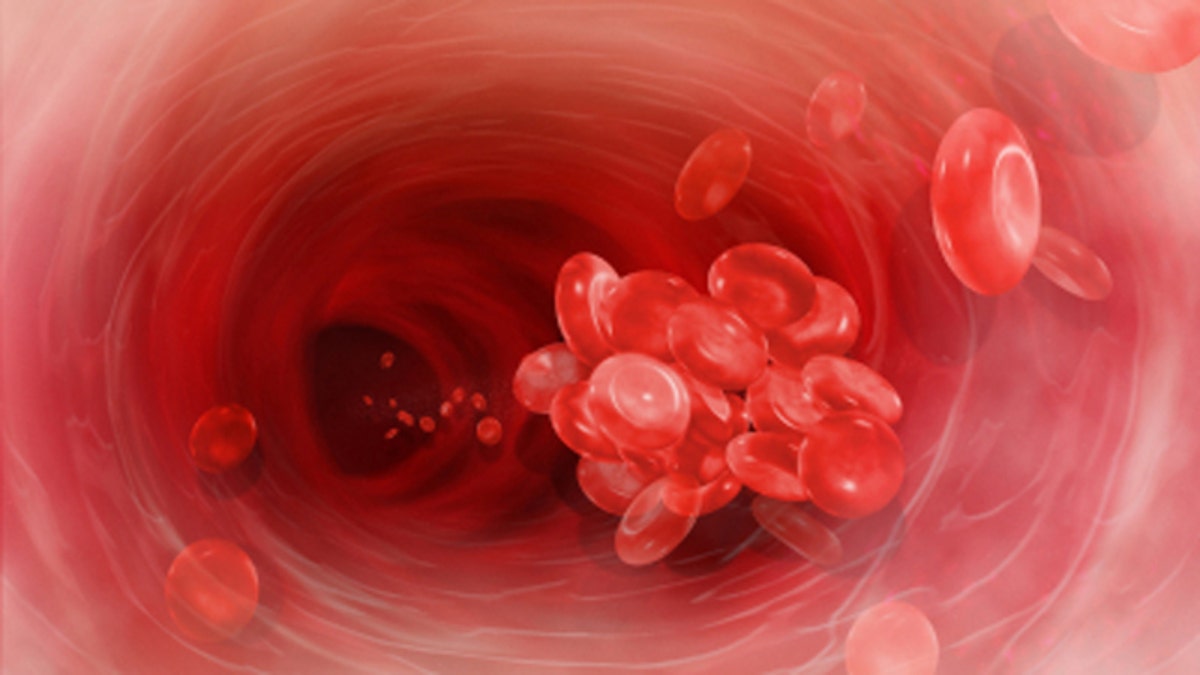
(iStock)
People who take blood thinners for atrial fibrillation and also use common painkillers, even briefly, are more likely to suffer serious bleeding, according to a new study.
The most common heart arrhythmia, atrial fibrillation (AF) affects 2.7 million people in the U.S., according to the American Heart Association.
The irregularity of the heartbeat increases the risk for blood clots and stroke, so most patients are prescribed blood-thinning medications like warfarin to keep blood clots from forming, according to the National Institutes of Health.
Blood thinners, technically known as anticoagulants, increase the risk of bleeding.
Many common over-the-counter painkilling medicines also have blood-thinning effects. These painkillers, known as nonsteroidal anti-inflammatory drugs (NSAIDs), include aspirin, ibuprofen (Advil, Motrin), naproxen (Aleve), celecoxib (Celebrex), and others.
NSAIDs and anticoagulants affect the blood differently. The new study has shown that “using them in combination can have a serious impact on bleeding risk,” said lead author Dr. Morten Lamberts of the Department of Cardiology at Gentofte University Hospital in Denmark.
“Even short term NSAID treatment (two weeks) is associated with severe bleeding risk,” Lamberts told Reuters Health by email.
Until now, researchers assumed this would be the case, but did not know exactly how much the bleeding risk increased, he said.
He and his team studied the medical records of more than 150,000 people in Denmark who were diagnosed with AF for the first time between 1997 and 2011.
More than a third of the AF patients had been prescribed an NSAID in the years following their diagnosis, the researchers found. In Denmark, ibuprofen has been the only NSAID available over the counter since 2001. Other NSAIDs, like naproxen, require a prescription.
Within three months after being prescribed two weeks of NSAID therapy in addition to AF treatment, 4 out of every 1,000 patients had experienced serious bleeding, compared to a rate of 1.5 serious bleeding events for every 1,000 patients not taking the additional painkillers, according to results in the Annals of Internal Medicine.
Patients taking NSAIDs were also more likely to develop a blood clot than others.
Some NSAIDs are known to increase blood clot risk, although the mechanism is not entirely known, Lamberts said. The new results indicate that even though combining anticoagulants and NSAIDs does increase bleeding risk, it is not offset by a similar decrease in blood clots, which would be desirable for these patients, he said.
“The combination of aspirin or other antiplatelet drug plus oral anticoagulant drug is more dangerous because you block two clotting pathways,” said Dr. Anne M. Gillis of the University of Calgary, who led the development of the first atrial fibrillation clinic in Canada.
Gillis was not involved in the new study.
Bleeding risk depends on underlying medical factors and extent of injury, she told Reuters Health by email.
For instance, Gillis said, for someone with gastrointestinal disease, the risk of bleeding is higher in part due to the risk of ulcers from aspirin or NSAIDS and in part because their blood can’t clot normally.
“A minor cut to the hand will eventually stop bleeding but a major trauma or surgical intervention will be associated with a marked increase in risk of serious bleeding,” Gillis added.
Doctors, nurses and pharmacists generally tell patients what drugs to avoid while on blood thinners, but patients may forget, or not realize that drugs they were cautioned against are in many over-the-counter formulations, she said.
“Common cold therapies may include ibuprofen plus drugs that are decongestants or cough suppressants and the individual may not pay close attention to this,” Gillis said.
“I believe many individuals do not perceive NSAIDs as having many serious side-effects, although our study shows the opposite with co-treatment with (anticoagulants),” Lamberts said.
If a patient on anticoagulants for AF has a headache or minor pain, instead of taking an NSAID they should make sure they are not dehydrated and that there is not a musculoskeletal problem that could be helped by exercises, he said.
“If medical treatment is needed, he recommends paracetamol, also known as acetaminophen.
Patients should recognize that side effects can happen with all types of medication and consult a physician before combining drugs affecting the blood, Lamberts said.
